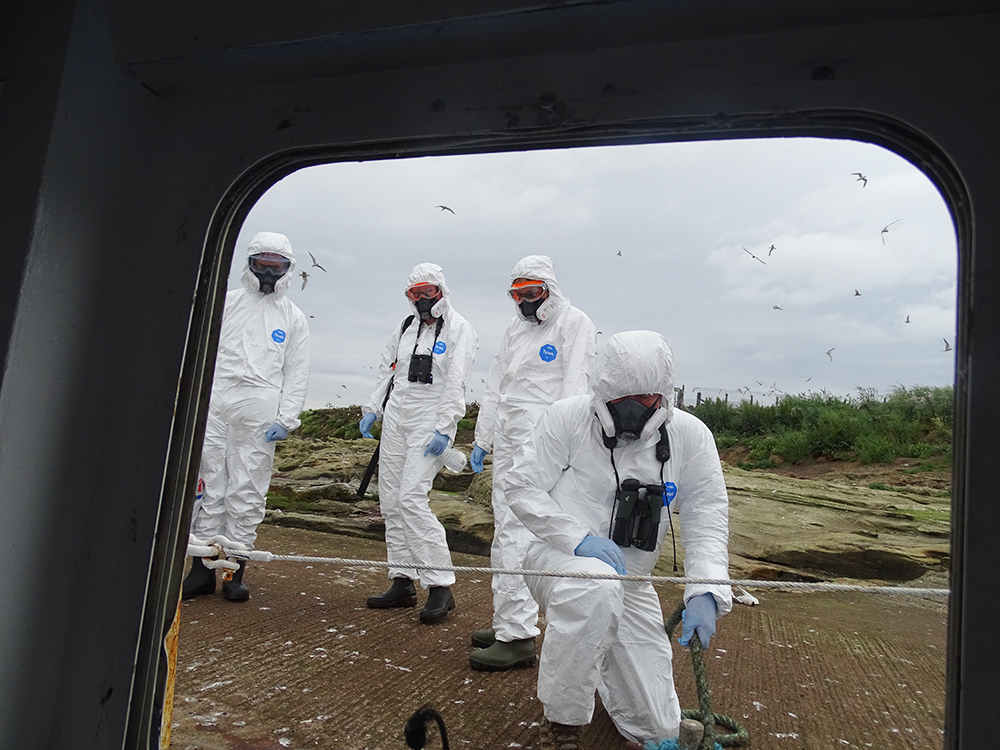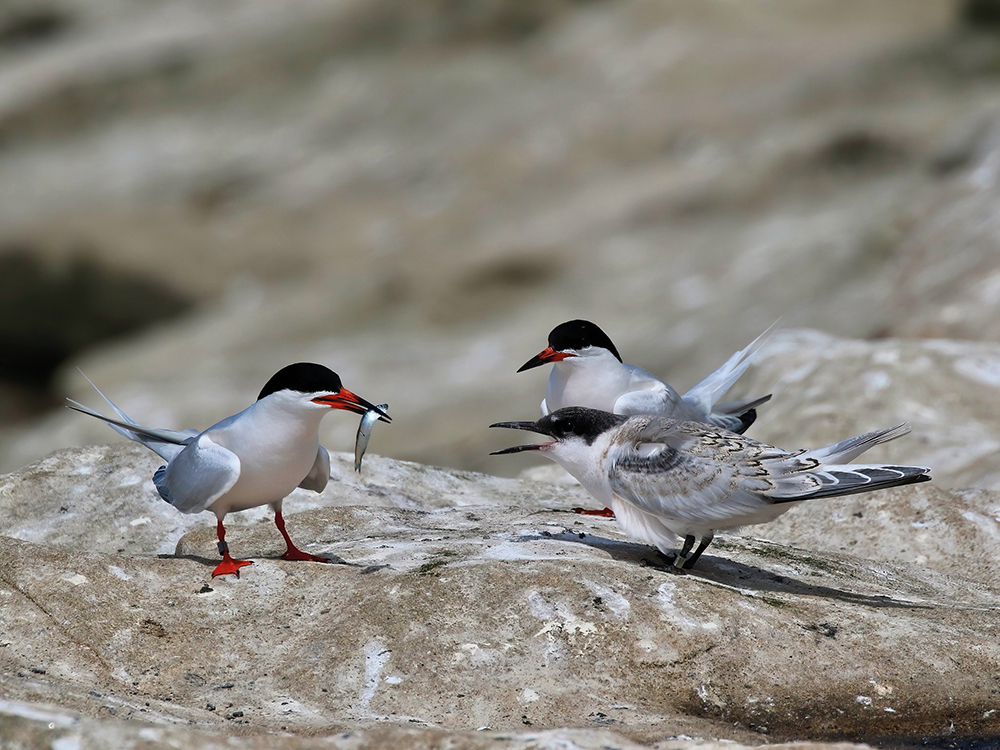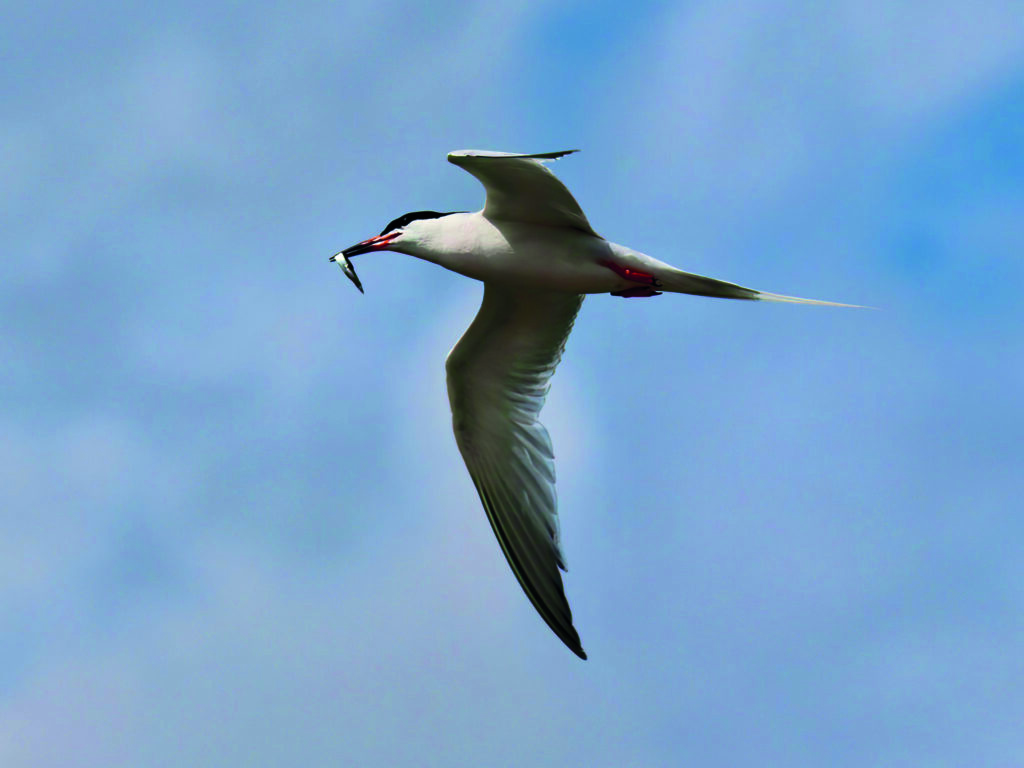Avian flu hits Coquet Island for the second year
Avian flu (AI) has hit the RSPB Coquet Island bird reserve for a second year, with fears growing for the rare Roseate Tern colony which was badly affected by the disease in 2022.
The Ambler has learned that this year hundreds of Black Headed gulls, both adults and chicks have died, while hundreds of Common Tern and Arctic Tern chicks have been found dead.

Avian flu has once again hit Coquet Island’s rare bird colonies, meaning staff have to wear PPE. Photo: Ibrahim Alfarwi
AI was confirmed on the island on 5 June. Since then, staff have had to don PPE to carry out monitoring and for the collection and removal of dead birds.
Warden Ibrahim Alfarwi said: “Since the confirmation of AI on the island, we are continuing our conservation work with some changes. Whilst the birds are on the island and we continue to have AI in the wider seabird colony, the RSPB conservation team will conduct their work on day visits (rather than staying on the island overnight).”
“So far there have been 86 active Roseate Tern boxes and we put rings on 79 healthy chicks,” said Ibrahim. “Unfortunately since the beginning of July we have also begun to find dead Roseate Terns, including large numbers of chicks.”

Roseate Terns feeding a chick. Photo taken on Coquet Island in 2022 by Tom Cadwallender
The Ambler was told: “The team has been using Avian Influenza swab kits provided by the APHA (Animal and Plant Health Agency) in collaboration with Natural England. We have conducted two swabbing sessions so far. The first session involved testing Black-headed Gull, Common Tern, and Arctic Tern. Among them, Black-headed Gulls tested positive for bird flu.
“The second session included Kittiwake, Black-headed Gull, Puffin (Adult and Chick), Sandwich Tern, and Common Tern. In this session, both Black-headed Gulls and Common Terns showed positive results for bird flu.
“We remain dedicated to ongoing monitoring.”

Roseate Tern with sand eel. Photo: Tom Cadwallender
Call for more research
The RSPB are calling on governments to do more research on the HPAI virus which has affected hundreds of thousands of wild birds around the world. Last summer, tens of thousands of seabirds died across the UK as a result of AI. Because they live long lives, seabirds take several years to reach breeding age, and rear only one or two chicks per year, so any impact such as AI can take a long time for them to recover.
A spokesperson for the RSPB told The Ambler: “We need all four UK governments to take impacts on wild birds more seriously, do more to understand the disease and to move towards implementing effective management and conservation measures. Governments need to see bird flu as a wake-up call for action to restore and protect the UK’s wild species as part of our national response to the nature and climate emergency.”
Anna Williams
Related article












